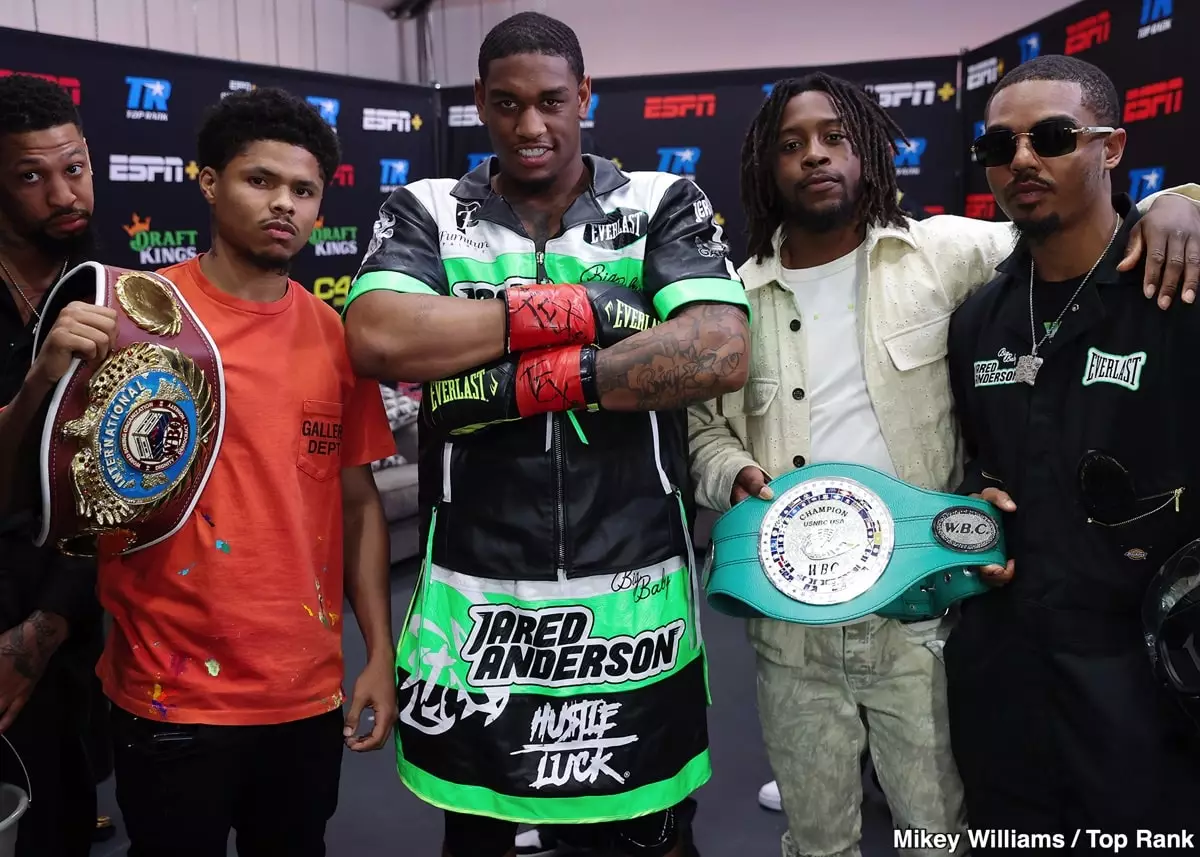Jared Anderson, a rising heavyweight boxer, recently showcased a lackluster performance in his fight against Ryad Merhy. Anderson’s comments post-fight revealed a deep-seated fear of brain damage, which seems to be inhibiting his ability to fully commit to his fights. This conflict between wanting to succeed in boxing while also avoiding potential long-term health risks raises questions about Anderson’s future in the sport.
During the fight, Anderson’s evasion tactics and reluctance to engage in exchanges with his opponent led to a rather uneventful match. Despite emerging victorious with a unanimous decision, both Anderson and Merhy were met with boos from the crowd. This lack of fan approval highlights a crucial issue for Top Rank, the promotion company backing Anderson. It’s difficult to market a fighter who openly admits to prioritizing self-preservation over entertaining the audience.
Anderson’s attitude towards boxing mirrors that of his friend and fellow boxer Shakur Stevenson, who also tends to employ a defensive fighting style. While Stevenson has found success with this approach, Anderson’s fear of brain damage may be hindering his potential for growth and marketability. By emulating Stevenson’s defensive tactics, Anderson risks being labeled as a boring fighter who lacks the flair and excitement that draws fans to the sport.
As Anderson reflects on his performance and contemplates his future in boxing, it’s essential for him to consider the implications of his mindset. While his concerns about brain damage are valid, boxing inherently involves a degree of risk. If Anderson cannot reconcile this reality with his fears, he may need to reevaluate his career path. Continuing to compete while harboring such apprehensions could not only compromise his success in the sport but also his long-term well-being.
Jared Anderson’s recent fight and subsequent comments have shed light on a critical dilemma facing the young boxer. The juxtaposition of his talent in the ring with his fear of sustaining brain damage creates a challenging predicament for both Anderson and his promoters. Moving forward, Anderson must decide whether he can overcome his anxieties and fully commit to his boxing career, or if the risk of injury is too great a burden to bear. This pivotal moment could determine the trajectory of Anderson’s career and his legacy in the sport of boxing.

